#utsukare
Photo
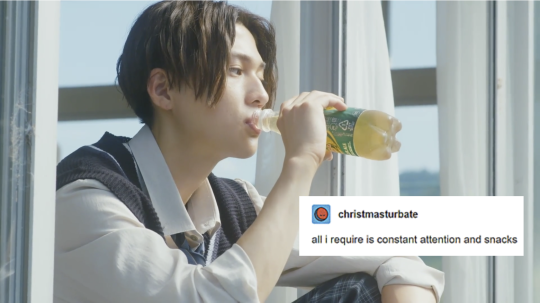
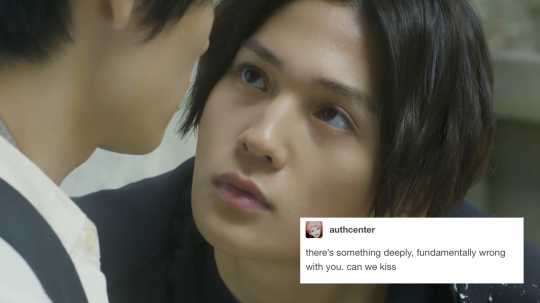





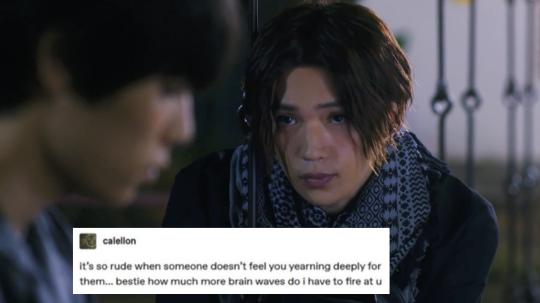
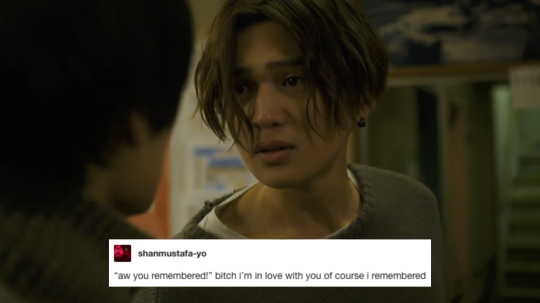

Utsukushii Kare + text posts (1/?) - Kiyoi edition
+ EXTRA:

For @lollipopsub who all the way back in December posted “My fave part of bl tumblr atm is those text posts with screenshots and rly funny tweets etc on top but have no one made them for utsukare :o”
Consider this my way to thank you for all the amazing work you’ve done for the utsukare community online <3
#utsukushii kare#my beautiful man#utsukare#uktp#I've got more made but I'm waiting to complete up to 10 for the next batch#asian tv#*new
2K notes
·
View notes
Text


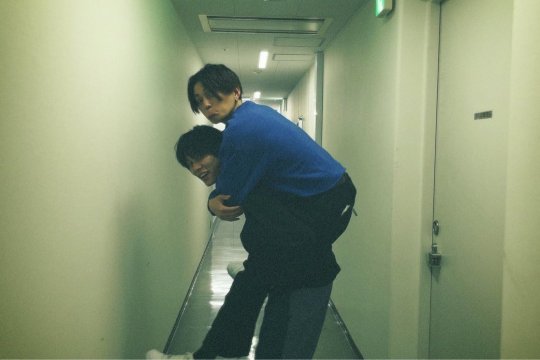

no thoughts. head empty. only this rikuyusei photoset living in my mind. twenty-four seven. rent free.
#utsukushii kare enternal#utsukushii kare#utsukare#my beautiful man#hirakiyoi#hirakiyo#kiyoi sou#hira kazunari#fantastics from exile tribe#yagi yusei#hagiwara riku
232 notes
·
View notes
Text
Utsukushii Kare / My Beautiful Man Novel [ENG TRANSLATION]
Hi guys!!!
With help from wonderful people I've managed to set up a wordpress site for the novel.
Find it HERE!

Updates will be slow but that doesn't mean I will drop it.
Please spread the word that I've re-uploaded the story and let's cross our fingers it gets to stay on there this time!
542 notes
·
View notes
Text
And that was romantic...
#utsukare#my beautiful man#utsukushii kare#hira x kiyoi#yagi yusei#riku hagiwara#japanese actors#japanese series#jbl
56 notes
·
View notes
Text
Hira's parents and his self-defeating tendencies
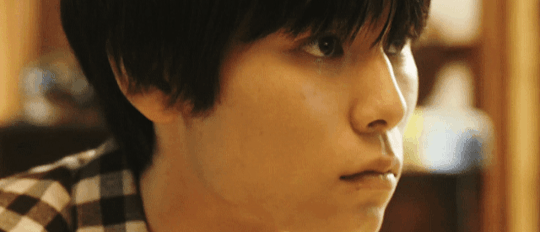
I was talking to @sorry-bonebag and @wen-kexing-apologist about what role Hira's parents might have played in creating the weirdness he displays throughout both seasons of Utsukushii Kare & Eternal. I started writing a response and it got too long and, well, now it's a post.
Before I talk about Hira's parents and the tendencies in him that they helped to create, I want to note that family of origin is just one of the influences that form us as people. Parents and caregivers have a huge influence, as do other family members. But so do peers. The bullying about his disability that Hira experiences nearly constantly is one of the biggest influences on his personality.
Hira's parents appear extremely briefly at the very beginning of the series. His mom fusses a bit about him being on his own and his dad is very "he has to take care of himself sometime" about it. We know they took him to specialists for his dysphemia, bought him his camera, etc.
Their departure is a show thing, by the way, and isn't present in the novel. In the novel they continue to live with him through high school and, if I remember correctly, part of college. But they don't play a big role in his life. The main things that happen involving them are either instances of Hira hiding things from them (or attempting to) or instances of his mother briefly, sporadically, having a big burst of worry about him. It would make sense if the show version of his parents were the same way aside from the leaving-him-to-live-alone part of things, though that’s not shown.
The rest of my thoughts are largely headcanon since I’m working backwards from his personality to guess about his formative years, but they match up with the little bit that’s shown in the series and how his parents are in the novel. I see Hira as having a self-defeating personality in a lot of ways. The typical etiology of this kind of personality (the set of conditions that lead up to it) is supposed to be a rather deprived childhood that is punctuated by occasional bursts of parental attention when the child is seen as in crisis somehow (or when they attract attention in other self-defeating ways, like intentionally getting in trouble).
This reminds me of something Nancy McWilliams writes about in Psychoanalytic Diagnosis, attributing the idea to someone named Emmanuel Hammer: “a masochistic person is a depressive who still has hope.” [I should note here that “masochistic personality” is an older term for self-defeating personality that is not meaningfully correlated with masochism in a sexual sense. I think that, despite how he might appear at first glance, Hira actually isn’t sexually masochistic or submissive. I have a whole mostly-written post about this that I hope will see the light of day eventually.] In other words, whereas the background that creates a depressive personality involves deprivation that's intense enough that the person gives up on the possibility of receiving the love they need, the self-defeating personality has had enough success with occasionally getting their needs met that they keep trying.
If that’s what happened with Hira, it would be consistent with what we see of his parents in the series. We know they pulled out the stops at certain points when it comes to his dysphemia. Anyone who’s a parent can tell you how hard it is to get a good specialist to see your kid, even when they have some kind of glaring issue and you have decent healthcare access overall. The fact that they managed to get him in with a specialist is notable all on it own. (I actually have some stressful phone calls I need to make today in a similar vein, seeking specialist help for one of my kids.) They also spent a lot of money on a DSLR for a young kid. And yet they’re OK with letting him live alone and after that point remain very hands-off. It also seems like despite the attention they paid to his dysphemia during that one period, by the time of the series they’ve totally stopped trying to support him about it.
Basically, I think his parents are largely neglectful (emotionally rather than materially) but that every so often, they freak out and pay a bunch of attention to him because they perceive him to be in need of rescuing. When he was young, he probably appreciated the attention when it happened, but at the time of the series he gets those needs met in other ways and/or displaces that need for attention onto Kiyoi. The idea of seeking attention in this way maps especially well onto his relationship with Kiyoi, because he seeks Kiyoi’s attention and approval through exactly the sort of strategies typically used by people with self-defeating personalities. Here’s McWilliams again:
Reik (1941) explored several dimensions of masochistic acting out, including (1) provocation [she refers to a previous anecdote about a woman who feared angry outbursts by her partner because of experiences with her father; she would act out in ways that antagonized him in order to “get it over with”], (2) appeasement (“I’m already suffering, so please withhold any further punishment”), (3) exhibitionism (“Pay attention: I’m in pain”), and (4) deflection of guilt (“See what you made me do!”).
I can think of plenty of instances of provocation (the first type). Hira often does things he knows will make Kiyoi angry, and sometimes visibly relishes the negative attention.
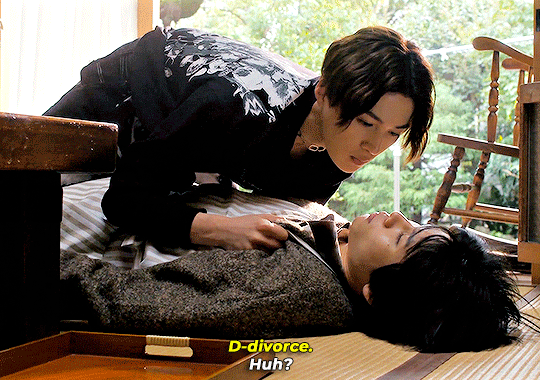
One good example is the scene in Eternal where he creates a totally avoidable misunderstanding by vaguely talking about how “a divorce is going to happen” because of an affair, which Kiyoi takes to be referring to their relationship and specifically, to Hira cheating. When Kiyoi rears back to punch him, Hira protests for a moment but then says being killed by Kiyoi is actually a longstanding wish of his. It turns out it’s Naho-chan who is getting divorced because her husband cheated. Hira could easily have spoken more clearly when he brought this up by using subjects in his sentences. When he first brings up divorce, Kiyoi says, “Who are you to decide on your own without me agreeing? What dissatisfaction do you have with me?”, which makes it clear he thinks Hira is referring to something involving him. Yet Hira continues to speak without subjects when he elaborates and says the reason for the divorce is an affair. He only clears up the misunderstanding after Kiyoi has lost all patience and is (legitimately!) freaking out. There's no way this isn't, on some level, intentional.
One version of appeasement (the second type of self-defeating acting out) that McWilliams talks about is criticizing oneself before others can do so. It’s no exaggeration to say that Hira talking himself down to Kiyoi is a defining characteristic of their relationship. There are lots of examples of this but a particularly classic case is his constant refrain about being a “pebble.” His invitation for Kiyoi to “Please hit me as much as you want” after their fight in season 2 is another example of appeasement.
It’s hard to pin down specific examples of Hira employing the third type of acting out, exhibitionism. It makes sense that it wouldn’t be, though. This is a very covert type of exhibitionism that doesn’t announce itself. I think you can observe it in subtle ways, though. For example, when Shirota dumps tomato juice on Kiyoi, a bunch of it gets on Hira as well. Afterwards, Kiyoi cleans the juice off of himself as best he can, seemingly as quickly as possible, and changes his clothes. But when he talks to Hira afterward, dried drops of juice are clearly visible on Hira’s face. Acidic juice on one’s face would probably feel uncomfortable, but he intentionally doesn’t wash it off. It’s like he’s wearing these stains as a badge of honor and proof of his mistreatment.
I think deflection of guilt, the fourth type, is less characteristic of Hira than the others. He tends to absorb guilt rather than deflecting it, blaming himself in a way that often takes the form of the self-critical form of appeasement.
I think it's worth noting that he also employs appeasement as a strategy in the hostile environment of high school. His biggest rule in school is to avoid attention as much as possible, so exhibitionism and provocation aren't acceptable options. (He does disobey Shirota in a way that could be considered provocation when the rift between Kiyoi and Shirota first starts to form, but I think that's more a case of overt rebellion.) We don't see him employ deflection of guilt, though his teacher does seem a bit more forgiving of his attack on Shirota given what he knows about Hira's experiences with bullying. But appeasement? When he can't avoid attention entirely, that is his go-to strategy. It doesn't draw much, if any, additional attention this way. He can demonstrate to people who pose a danger to him that he's not a threat and is ready to comply with their orders if it will allow him to avoid mistreatment. It's only when he finds a kind of vicarious strength in Kiyoi (see my post here for more on that aspect of Hira) that he starts to deal with the bullying in other ways.
So, yeah. Hira's parents initially formed these patterns in Hira, peers deepened them, and they came out in his relationship with Kiyoi. A big part of the shift that needs to happen in order for their relationship to last is for Hira to stop using self-defeating strategies to sneakily get his needs met by Kiyoi and start seeking what he needs openly and assertively.
Maybe now would be a good time to brush off those other in-progress Utsukare posts and try to finish them off while I have a bit of momentum, huh?
By the way, if you’re interested in my previous Utsukare posts, I have a master post here with links to everything.
#utsukushii kare#utsukushii kare meta#utsukare#utsukushii kare analysis#psychology of bl#psychoanalytic theory#self-defeating personality#hira kazunari#kiyoi sou#hira x kiyoi
59 notes
·
View notes
Text

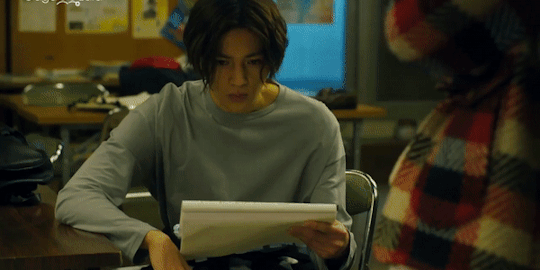
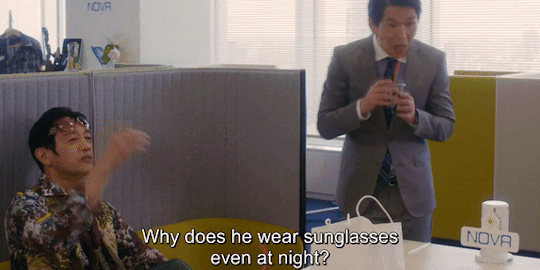

you say you don't care...but you get upset when people say bad things about him.
Protective Kiyoi !! [ s1ep6 / s2ep1 ]
#LISTEN#i lost my sh*t when he did that#koyama is one thing but glaring at his own manager?#0 to 100 boy has no chill#utsukushii kare#utsukare#my beautiful man#he who is beautiful#kiyoi sou
408 notes
·
View notes
Text
10 BL Boys I Want Carnally
Upon making this list I have discovered I do not want carnally a lot ot people. I want a lot of boys to be wanted carnally by other people instead xD
But I somehow managed. I am certainly weak to pretty faces.
Here goes @waitmyturtles!
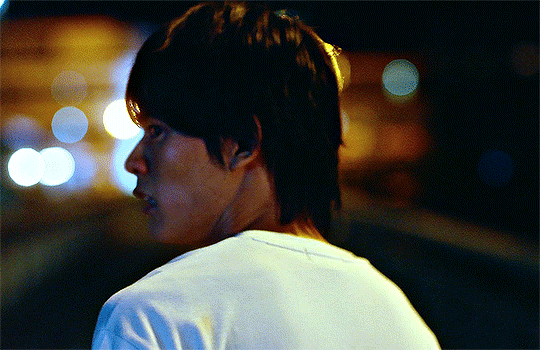
He has a je ne sais quoi that is SO attractive

Is it the mask? Is it the face? Is it both? Idk, but he does things to me
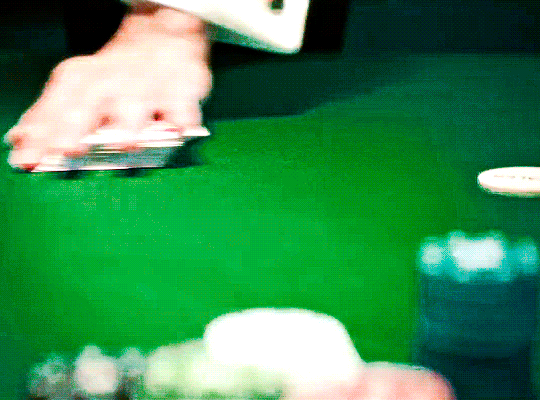
His whole face. Also crime is attractive

I might have a type
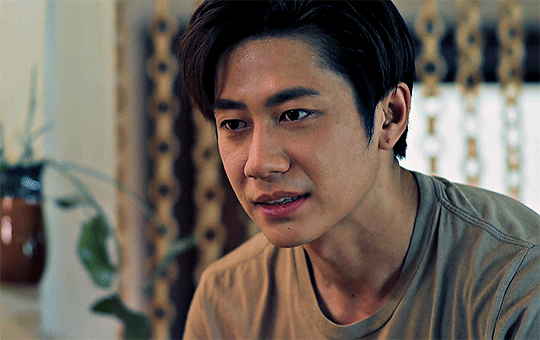
Tinn, my beloved
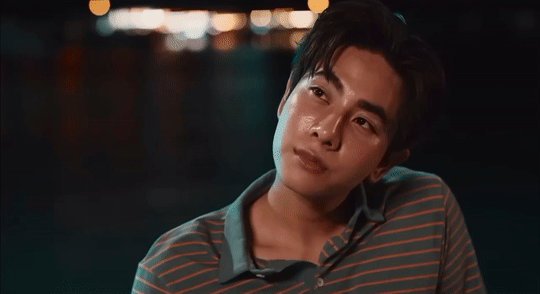
His whole vibe in Moonlight Chicken was *chef's kiss*
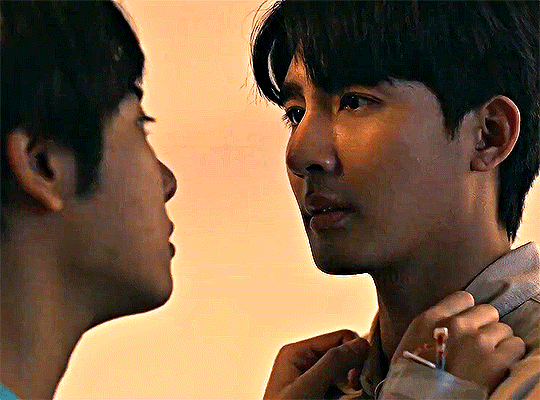
Korn from Cupid's Last Wish is the Earth I'd like to know carnally

Togawa, Togawa. Oh, Togawa
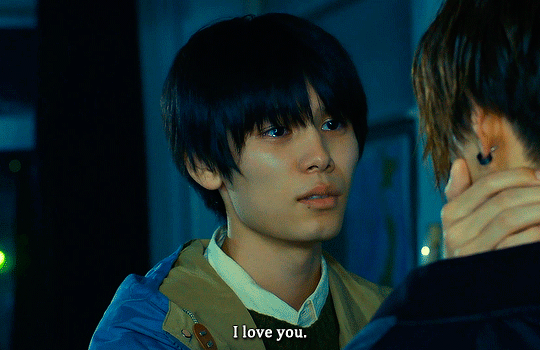
Hira might be a weirdo but his faces, damn (particularly in this gif)
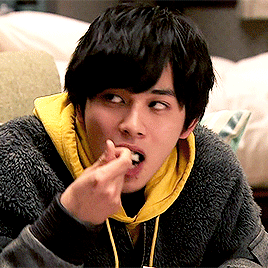
Hello there, cute sir who makes me feel things
This list has made me wonder is there's a penchant for voyeurism in me since, in the end, I want most of those people to want their significant other carnally while I watch from under the blanket hiding myself. Being human is weird.
Since so many people have been tagged in this I'm only gonna put a few here @emotionallychargedtowel @xagan @ranchthoughts @wanderlust-in-my-soul @takeadeepbreathandexist
#narakoi#color rush#jack and joker#wbl#laws of attraction#moonlight chicken#cupid's last wish#old fashioned cupcake#utsukare#tonari no kazoku wa aoku mieru#this was fun#tag game
55 notes
·
View notes
Text
The symbolism in this scene fucking broke me.
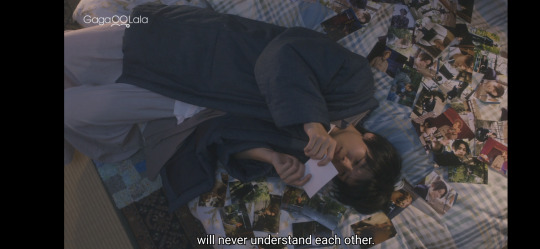
This scene is an exact parallel to the ending of episode 1. They even brought back Follow from S1.

Hira is in the same pose, lamenting about never being able to reach Kiyoi.
There are so many more photos of Kiyoi around his bed now, a collection of moments and memories and sides of Kiyoi only Hira sees. But no matter how many of these snapshots he gathers, Hira hasn't budged from his spot even a little bit, he's still in the same state as he was in the first episode.
As Kiyoi grows and changes and matures, and Hira is stuck in the same place, full of fear and anxiety and trauma, the psychological distance between them only grows wider and wider, they understand each other even less, and simply cannot give the other what they so desperately need.
Hira has to stop putting himself down and take Kiyoi off the pedestal, he has to become comfortable with the idea of simply existing around Kiyoi without considering it some sort of mortal sin, because a truly eternal love can only be founded upon equality, and you can't have equality until you learn how to love yourself.
#utsukushii kare#utsukare#utsukushii kare 2#my beautiful man#my beautiful man 2#hirakiyo#hira x kiyoi
273 notes
·
View notes
Text
Honestly I don’t think I have ever seen a show that understands it’s characters as much as my beautiful man does. I also think that’s precisely why season 2 was just as good as the first one which is something that many bl’s can’t do.
In the last episode of season 1 Kiyoi still ran away from Hira before their final resolution. And while in the third ep it looked like he is still doing the same, this episode shows just how much he grew. He is a sulky person and that didn’t change he just now knows how to handle it. He knows how to handle the situation and Hira which is something we have been seeing throughout this whole season. He was honestly my favourite.
And then we have Hira and honestly even with how much he frustrated me this season I can’t help but just absolutely adore him. Why? BECAUSE THE SHOW KNOWS IT’S CHARACTERS. It understands his flaws but most importantly the reasoning behind it. The last episode just showed that. While it may look like Hira hasn’t changed much he’s slowly getting there. Maybe slower then the people around him (like the people in the reunion) but that doesn’t matter especially for Kiyoi. He is actually explaining his reasoning and thought process and allows himself to be vulnerable towards Kiyoi. Also the things that the photographer mentions about Hira are so interesting and explains his character quite well. But damn the man really psychoanalysed my dude…
Finally, Hira and Kiyoi’s relationship is what makes this show so great. Kiyoi really knows Hira so well. He has a deep understanding of him which is something Hira really needs. Someone who understands him and they way he is. Sure Kiyoi gets mad at him (rightfully) but he always comes back and tries to talk it out and understand Hira. They’re slowly getting there but their dynamic doesn’t change and it never will. Which it doesn’t need to. I think the last episode showed how their dynamic (with lots of communication and understanding) can really work
This post is a mess and I do not have enough understanding in English to explain just how well this show and its characters are written. This will always be one of my favourite shows. Writers, I love you all and I never doubted you (that’s a lie I definitely was worried)
#ISTG THE WRITERS DESERVE EVERYTHING IN LIFE#SO TALENTED#also riku and yagi yusei were so amazing#props to all of them#utsukushii kare#utsukushii kare 2#my beautiful man 2#hira x kiyoi#my beautiful man#riku hagiwara#utsukare#yagi yusei#hirakiyoi
299 notes
·
View notes
Text
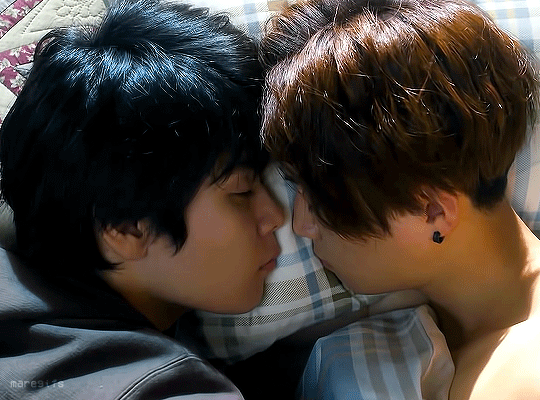

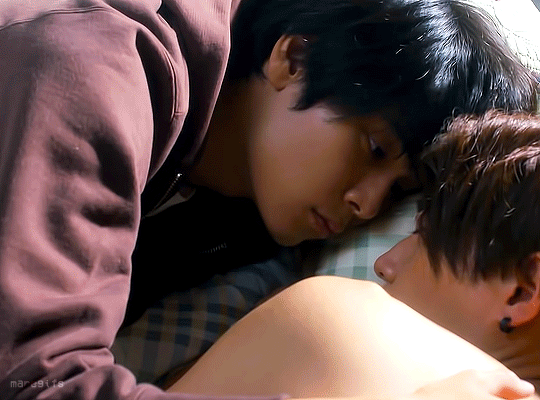


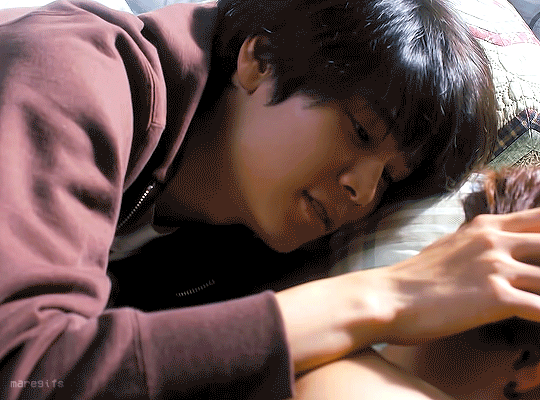
UTSUKUSHII KARE SEASON 2 (2023)
#utsukushii kare#utsukushii kare: eternal#utsukare#jdramagifs#jdramaedit#jdramasource#japaneseartistsinc#userdramas#lextag#tuseralexa#usergooseras#uservid#maregifs#gifs#mare23#deserve compensation for coloring this show
325 notes
·
View notes
Text
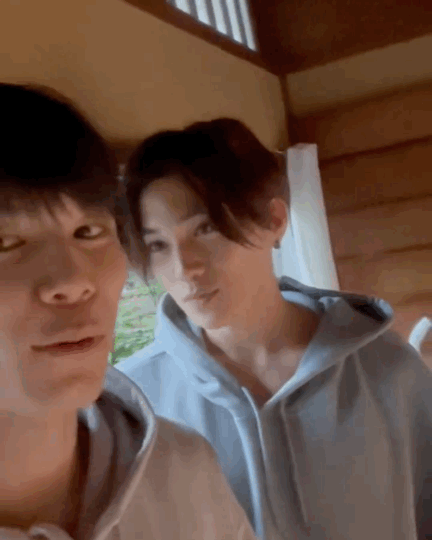
the kiyoi demon took over yusei🫢
#utsukushii kare#utsukushii kare 2#my beautiful man#yagi yusei#hagiwara riku#utsukare#hirakiyoi#yusei yagi#riku hagiwara#hira x kiyoi#utsukushiikare
224 notes
·
View notes
Text
hira - says something cute
kiyoi - can’t control how much he loves hira, uses violence to distract from the fact he finds hira adorable in every way
hira - does something cute
kiyoi - cannot possibly let hira know he’s head over heels = “gross”
#utsukushii kare#utsukushii kare 2#utsukare#utsukare 2#my beautiful man#my beautiful man 2#yusei yagi#riku hagiwara#hira x kiyoi
196 notes
·
View notes
Text
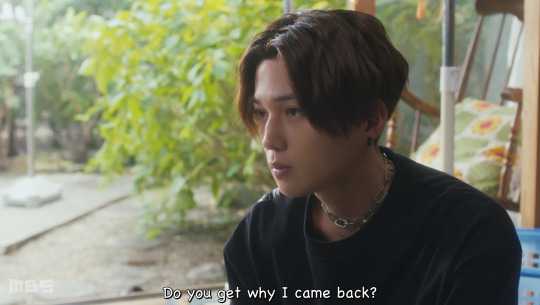
I wish to inform you all that in Japanese, there's two words that translate to "come back". One means to return to a place that you've been to before (e.g. "I've been to Japan before and came back") ("modoru" (戻る)) and another one that means to return home (kaeru (帰る)). Kiyoi uses the latter here and I just think it's very sweet🥺
316 notes
·
View notes
Text
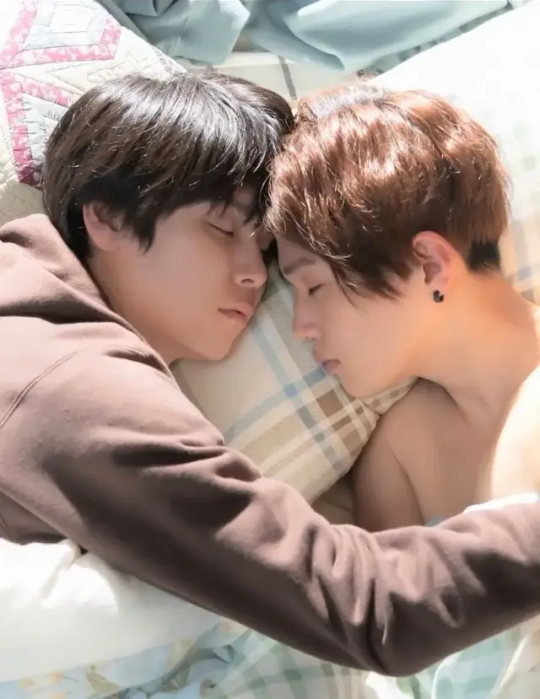

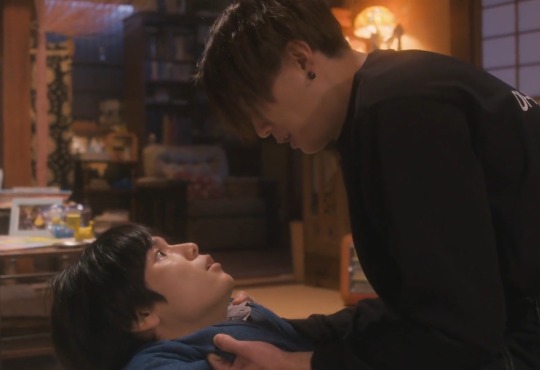
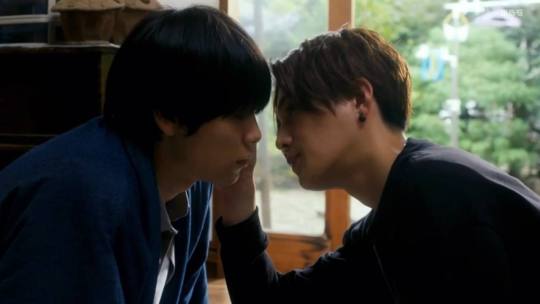
Happy 1st anniversary to utsukare S2
26 notes
·
View notes
Text
The psychological paradoxes of Utsukushii Kare, part 1: Covert grandiosity and finding status through idealization
I’ve had some thoughts about Utsukushii Kare bouncing around in my head since the end of season 2. I started to post about them back then but my first attempts stalled out. Maybe the ideas involved were too complex, or I just needed to let them marinate a bit longer. I tried to give up on getting them on “paper,” but they just wouldn’t leave me alone. Eventually I returned to them and everything clicked. This is part one of my attempt to get those ideas down. After a ridiculous amount of tinkering, it seems like the right time to let it see the light of day. Subsequent posts are in different stages of readiness as well.
I wouldn’t have finished this without copious encouragement and feedback from @lurkingshan and specific edits from @wen-kexing-apologist. A kind comment from @nieves-de-sugui was a shot in the arm. And I’m always indebted to @porridgefeast for support, encouragement, and cute animal content.
I’ve written a lot about this series in the past; refer to my Utsukare master post for a continuously updated list. This includes some related posts on pursuer/distancer dynamics and attachment style in the series that have some overlap with what I’m discussing here, but this post should also stand on its own quite well.
A few things to note at the outset:
My focus here is on the series (both seasons), but I will refer to the movie, the novel, and a couple of vignettes when they illustrate points that are consistent with and relevant to the series.
My approach in this series of posts involves viewing fictional characters the way I would if they were real people--a bit like if I were to do a case conceptualization of a potential client. This isn’t always the approach I use, or the best one, but I thought it was a good fit for what I wanted to discuss here.
Quotes will be cited, but general information on sources will be given at the end of the post.
Now, to get down to business.
* * * * * * *
I’ve seen a lot of commentary from other Utsukare fans about Hira and Kiyoi and how much their self-worth–and the lack thereof–impacts their relationship. It’s a clear theme and lots of folks have had salient insights about it. But one thing I haven’t seen in any of the posts I’ve read is a full acknowledgement of the duality at play there–the way that both characters sometimes believe, or at least fear, that they’re irredeemably awful and at the same time believe, or perhaps hope, that they are better than everyone else.
I’m sure someone reading this is thinking, “Kiyoi is like that, sure. But Hira? Thinking he’s superior? Come on.” I get that it isn’t always apparent. In a genre that loves to portray profoundly smitten, devoted characters, Hira stands out as intensely, even excessively, whipped. But yes, Hira totally sees himself as superior to others in some important ways. Even before Noguchi Hiromi took his inventory about this so mercilessly, there were plenty of other signs.
covert grandiosity and idealization
Our introduction to Hira is his description of the “pyramid” social structure he experiences at school and how he’s at the lowest level of that pyramid (invisible at best, a visible target at worst). At first glance, this seems self-deprecating. But Hira is just describing where he falls in the structure, not endorsing the structure or his place in it. This sets up an important distinction that comes up continually in Hira’s thinking. Sometimes he really thinks badly of himself. But other times, he’s reporting how, in his view at least, others think of him. Sometimes he’s resigned to the ways others see him, but other times, he rebels against them. He doesn’t always make it clear which of these things he’s doing at a given time, but if you know what to look for it starts to be easier to pick out.
Mind you, it’s still very clear that there are ways in which Hira does view himself extremely negatively. His belief that he’s unworthy of Kiyoi is particularly strong. It inspires a lot of demeaning metaphors about himself, like calling himself a “pebble.” His belief in his unworthiness is linked to the belief that Kiyoi can’t possibly return his feelings or that if he does, it’s a bizarre miracle that can’t possibly last over the long term. The most remarkable thing about this belief is its incredible persistence, even in the face of example after example of evidence that Kiyoi loves and values him too and wants them to stay together. But denigrating himself in this context has a different meaning from what it would in others, as I'll get into in more detail shortly.
It’s a pretty universal human tendency to pay more attention to information that confirms our biases than information that challenges them. We’re also hard-wired to be more attentive to perceived threats (including threats to our sense of self-worth) than we are to less threatening things (and ideas). Both of these tendencies contribute to the fact that most of us fail to notice when our negative beliefs are being disproven.
I’ll be discussing this in more depth in part 2, but for now, I’ll just say that resistance to disproving a negative belief is very normal, but Hira’s stubbornness is way beyond what’s typical. He continually misinterprets or simply ignores clear signs of Kiyoi’s interest in and regard for him. I mean, most of us, no matter how poor our self-esteem is, no matter how jaded and pessimistic we are, would, if kissed by someone we’re in love with, at least entertain the possibility that they might like us a little bit. Not only does Hira not consider this possibility, he comes up with the rather bizarre interpretation that the graduation day kiss was Kiyoi’s way of telling him to leave him alone.
So, why would anyone be as stubbornly negative on this point as Hira is? Part of it is the strength of his negative beliefs and the degree of his bias. But there’s another reason as well, one I’m going to circle back to in a moment.
First, let’s look at Noguchi’s assessment of Hira in season 2, episode 4, which is very pertinent here. Talking about Hira’s submission to the Young Photographica contest, Noguchi says:
It was such a childish photo. You should've just chosen an empty place rather than erasing people. Going out of your way to [erase] people made it very clear that you hate this world. What I felt from your photo was tremendous selfishness and disgust. You haven't succeeded at all, but you think you're amazing. But instead of showing it outright, you make a shell by belittling yourself. You look down on this world with youth, stupidity, and ambiguity….You're just like the old me.
(dialogue from Viki subtitles)
It’s a little bit of a stretch, I think, to suggest that Noguchi can really tell all of this just by looking at a single photo (or even Hira’s entire portfolio). I think this partly happens just for the convenience of the story. But if I had to justify it, I’d say Noguchi has this much insight because, as he says, he used to be like Hira, making this a “takes one to know one” situation.
Hira confirms that Noguchi is correct here. “It’s like he sees right through me,” he thinks. So how do we reconcile this with Hira’s apparent negative self-image? Well, first off, it’s not unusual at all for very negative and excessively positive beliefs about the self to coexist in the same person. Take narcissism for example. People tend to think of narcissists as grandiose, thinking they’re amazing and special to a degree that’s clearly distorted. And that is one of the key symptoms of narcissism. But it’s also typical for narcissists to believe that if they aren’t remarkably special, they’re totally worthless. They have a hard time sitting with moderate (hence realistic) beliefs about themselves.
This kind of narcissistic tendency is really strong in people with Narcissistic Personality Disorder, but it’s present in a milder version in a lot of people (I suspect it’s present in most people, to some extent and under certain circumstances). Narcissistic personality traits are supposed to be linked to getting stuck at a developmental stage that ideally gets worked through during childhood. But a lot of us have at least a little bit of unfinished business from that period. I think Hira has a ton of unresolved stuff in this area. I definitely don’t think he would meet criteria for NPD. But I think that when he was in that developmental stage, he came up with some maladaptive strategies that helped him to get through it. As a result, he didn’t get stuck in the full-blown grandiose version of NPD, but he did get stuck with those maladaptive strategies, and they became a part of his personality instead. And he did retain 1) some of that highly polarized idea of self-worth (“I’m either the best ever or complete garbage”) and 2) some degree of belief in his superiority to others, no matter how shameful he finds it or how carefully he conceals it.
It’s also worth noting here that adolescents aren’t typically supposed to be diagnosed with personality disorders and even diagnosing young adults is often discouraged. This is because adolescence and early adulthood are times of intense change and development and the natural process of maturing can cause personality disorder symptoms to resolve even without mental health treatment. So that’s yet another reason to be wary of labeling Hira with any such diagnosis. This points to a major theme of the show, which is the fact that the central characters are works in progress. They aren’t fully formed adults yet, and that gives them a chance to improve themselves before they become set in their ways.
Getting back to Noguchi’s points: Hira is pretty misanthropic, although it’s often shown in pretty subtle ways in the show. This aspect of Hira is more noticeable in the novel. For one thing, the novel establishes early on that the erasing-people-from-photos thing isn’t some new or isolated phenomenon. Rather, the main thing Hira does with his camera at the beginning of the story is to intentionally take photos of populated areas and then carefully photoshopping out all of the people. And it’s explicitly because he dislikes, even hates, most of humanity. This tendency still comes through in the series. Sometimes it’s obvious–remember those mass shooting fantasies?--and other times, it’s more subtle. We know that this aspect of the character is definitely still present in the series version of Hira since he confirms what Noguchi says about how his photo shows “selfishness and disgust.” He really is disgusted by many of the people around him.
making a shell - perfectionism and covert grandiosity
What about the part of Noguchi’s spiel where he says that Hira “make[s] a shell by belittling [himself]?” It took me some thinking to realize what (in my view) he meant by that.
This actually syncs up really well with something Noguchi says about Hira in Utsukushii Kare: Eternal. It’s illuminating enough that I’m making an exception here to confining myself to the time period of the series.
In this scene, Kiyoi is scheduled to be photographed by Noguchi on a day that Hira isn’t present at his studio. He asks about Hira and he and Noguchi talk about him briefly. Hearing that Kiyoi was Hira’s high school classmate, Noguchi talks about how weird and confining high school is, a terrible “environment for growth.” He says that doesn’t apply to Hira, though, because he’s “a king in sheep’s clothing.” This catches Kiyoi’s attention. “I was just thinking that you understand him really well,” he tells Noguchi. “I do,” Noguchi replies. “Although he looks timid and weak, he’s actually really strong.”
As Noguchi continues, his comments become more metaphorical and get harder to understand. (I suspect that the metaphors he uses might be idiomatic or otherwise intelligible to a Japanese audience in a way that’s difficult to get across in translation.) The gist is that he sees Hira as “strong-minded,” but that “in his heart” he has a kind of “sanctuary” that he protects from others, and that this could end up either holding Hira back or being something he can use to get somewhere in life. I’m not sure what to make of the sanctuary part, but it’s clear that Noguchi understands that Hira has thoughts and emotions that he doesn’t share with anyone, and that his image as a “sheep” who is “timid and weak” masks an unseen strength and determination, along with a more king-like attitude toward the world than he typically shows to others.
Time for a quick psychological theory sidebar, this time on perfectionism.
Some researchers who study perfectionism have identified a type they call “narcissistic perfectionism.” Narcissistic perfectionists think that they are, or need to be, perfect, and they expect others to be the same way, thinking about them in highly negative ways if they don’t measure up. If you read about this idea, most of the examples given to illustrate it are people who have achieved a lot in their lives, who can point to big accomplishments. But perfectionism doesn’t always result in achievements. Sometimes it keeps people stuck in a mindset that anything but perfection is pointless, making them reluctant to really try to do anything at all. If you’re a perfectionist who has a need to believe you’re special, that you would achieve big things if you tried, actually trying means taking a risk that you’ll find out that when you try, the results aren’t actually perfect and amazing.
According to narcissistic thinking, this would mean that you’re worthless, because the options are either being the best or being complete garbage. Again, I think it’s an overstatement and an oversimplification to call Hira a narcissist, but he has unresolved self-worth baggage that takes a somewhat narcissistic shape. In this way, he shows a kind of perfectionism that seems clearly underpinned by his self-worth issues. Instead of fueling achievements, this perfectionism keeps him stuck, inactive, too afraid to attempt what he thinks he might be able to do while clinging to a fantasy of what he could do if he ever got un-stuck and really tried.
That’s usually a secret. Remember when Hira didn’t make it through the first cut of the contest? He thought, “Even though I always deny it out loud, I did think photography was the one thing I can do. It felt like I was being ripped apart for being conceited" (dialogue from a fansub by @lollipopsub). The fact that he would "deny it out loud" is notable. I also think that he’s still not being entirely candid. If he thought “photography was the one thing [he] can do,” that wouldn’t exactly be “conceited”--it would actually be quite modest (about photography) and harshly self-critical (about everything else). I think deep down he has thoughts that are truly conceited, thoughts that he’s not just competent when it comes to photography, but “amazing,” as Noguchi puts it. Once again, Hira confirms everything Noguchi said with his “he sees right through me” reaction, so he agrees with this assessment.
This conceited side of Hira is never supposed to see the light of day. This is the main reason he’s so intensely embarrassed when Noguchi understands him so well, I think. It’s what Noguchi is talking about when he says that Hira “make[s] a shell by belittling [him]self.” Acting as if he’s the lowest of the low is a defense. It does correspond to the part of himself that fears, at times even believes, that he’s worthless. But it’s also a way of hiding his grandiose side. This is a way of protecting himself from the reaction others would have if they could see how highly he thinks of himself despite not having made enough effort to accomplish the sorts of things he thinks he’s capable of. It’s also a way of protecting himself from his own awareness of his shortcomings and pretensions.
There’s another type of perfectionism researchers have identified, called “covert perfectionism,” in which the person’s outward expectations of others are low and they don’t show their perfectionistic traits outwardly very much, if at all. They’re supposed to be more likely than some types to get trapped in the kind of stuckness I mentioned earlier, in which perfectionism prevents the person from making a real effort at things they would like to do well. In some important ways, Hira’s perfectionism resembles this type as well. You could say that his type of perfectionism has definite narcissistic attributes, but he hides it well enough that it is also covert.
A number of different articles on perfectionism that I looked at cited the same Brene Brown quote about it, from her book The Gifts of Imperfection. I think it’s very salient here. She writes:
Perfectionism is a self-destructive and addictive belief system that fuels this primary thought: If I look perfect, and do everything perfectly, I can avoid or minimize the painful feelings of shame, judgment, and blame.
This is very characteristic of Hira. He doesn’t expect to “look perfect” in most respects (he’s more likely to simply try to go unnoticed). But he is obsessed with avoiding those painful emotions. He has spent his entire life being shamed and judged and living in fear of it happening still more. He’s very strategic and has given a lot of thought to how best to avoid being shamed. In fact, these efforts seem to be part of the reason he is such an avid observer of the social structures around him–learning about those structures is a survival skill for him.
idealization and affiliation: borrowing status
In addition to factoring in his covert grandiosity, I think there’s something else to account for when looking closely at Hira’s apparent self-hatred. Hira’s self-critical tendencies can appear inflated if we lump examples that pertain to his relationship with Kiyoi in with other cases. They should actually be looked at separately, because their meanings are distinctly different. Again, I don’t contest that Hira has a low opinion of himself in a lot of respects. But I think when we step back and look at many of the biggest examples of what appears to be a negative view of himself, a lot of them are focused on where he stands in relation to Kiyoi. That’s not the same thing as his value as a person. And placing himself in a certain role in relation to Kiyoi has a specific kind of meaning for him, along with a specific kind of payoff.
Here comes another theoretical interlude. This time, I’m going to briefly touch on Heinz Kohut’s idea of the need for idealization.
Kohut was the originator of a school of thought called self psychology, a branch of psychoanalysis that underpins a lot of contemporary psychoanalytic/psychodynamic theory and practice. He was also an expert on narcissism and basically saw variations and degrees of narcissism as central to a lot of psychological challenges. (There’s some reason to believe Kohut may himself have had narcissistic personality disorder, which would have made him intimately familiar with its inner workings.)
Kohut’s self psychology departed from Freud’s whole psychosexual development model (basically, everyone’s least favorite aspect of Freudianism—the part with all the penis envy and Oedipal stuff and so forth). In its place, self psychology focuses on how we see ourselves, what our needs are in terms of self-image, and other matters that are very relevant to this discussion. One of Kohut’s most important insights was his observation that even when other people have a big impact on our psychological state, what we’re interacting with isn’t so much the other person themselves but our internalized idea of that person. Kohut called internalized versions of people and things from our external world “selfobjects.” (I’ll be circling back to this momentarily.)
One of Kohut’s most central concepts is idealization. In Kohut’s version of idealization, a person views someone else as basically perfect, maybe even omnipotent. The idealized person becomes a special kind of selfobject. In the best case scenario, the person doing the idealizing has some kind of real, personal connection to the idealized person. But even a mental connection to them via their status as a selfobject can meet a need in some ways.
By feeling connected to, or even just affiliated with, the idealized person, the idealizer feels like they take on some degree of the qualities they see in the idealized person. It’s not hard to see how this tendency would date back to childhood. Children have a particular need to idealize their parents at certain stages in their development. Thinking of their parents as strong, capable, in control, wise, calm, etc. gives children a sense of safety and a sort of borrowed self-esteem.
Once you’ve idealized someone, you feel a real need to continue to see them as special and powerful. Again, childrens’ views of their parents are a good example here. One reason children often blame themselves when they are neglected or abused is because they have a strong need to continue to view their parents favorably. Without that favorable view of their parent, their world would seem chaotic and dangerous. Blaming themselves often seems safer. Here, maintaining the high status of the idealized person is so important that it’s a bigger priority than preserving self-worth.
I bet you can guess where I’m going with this. Yep, Hira idealizes Kiyoi in the Kohutian sense of the word. There are a number of facets of this. Part of it involves viewing Kiyoi as basically perfect–outstanding in every way. Even when Hira sees Kiyoi as cruel, he seems to view this as an ideal attribute for someone like Kiyoi.
Hira not only states that he thinks of Kiyoi as “like a God" in season 1, episode 6, he frequently expects Kiyoi to have god-like qualities and abilities. In one of Nagira Yuu's shorter pieces about Hira and Kiyoi that's told from Hira's perspective, he's explicit about this. "Kiyoi's existence is already in a much higher dimension than human beings," he thinks. "Is he the successful fusion of deity and human? That is the big question" ("Wonderful World," as translated by @sparkling-rain). At points during the series, he expects Kiyoi to have a superhuman degree of freedom to do anything he wishes and to know things that would require him to read Hira's mind. He really does treat him as if he’s practically omnipotent.
Hira's idealization of Kiyoi has a number of implications. One is that Hira misunderstands the social structure at his school. He views Kiyoi as the unquestioned king and doesn’t see that in many ways, Kiyoi makes choices about how to behave in school out of a desire to stay on the good side of bullies like Shirota. This fundamental misunderstanding in turn makes it impossible for Hira to notice or understand all the ways Kiyoi tries to protect him at school. If Kiyoi were really at the peak of the school hierarchy, if he wanted to be nice to Hira, he would just do it. But because he has to maintain a certain image in order to keep himself safe, he has to help Hira in covert ways. For example, when Kiyoi admonishes Yoshida not to order Hira around or use his demeaning, ableist nickname, he makes it seem like he just wants Hira to be at his beck and call, which wouldn’t be possible if he were occupied doing tasks for others. But if that were the case, why would he object to Yoshida using the nickname? For that matter, why doesn’t Kiyoi ever use the nickname himself? (He says it aloud in his exchange with Yoshida, but he never actually uses it to address Hira.) If Hira weren’t so invested in the idea of Kiyoi’s supreme power, he might have noticed these disparities between his narrative and reality within the story.
In season 2, the fact that Hira is both someone who has a relationship with Kiyoi and at the same time is a fan of Kiyoi as a performer points out another aspect of idealization. While I’ve never seen Kohut’s concept of idealization applied to fandom, I think there’s at least a variation of it at play when we feel comforted by, or as if we gain status from, being a fan of a person (or a group, piece of media, etc.) that we see as special or powerful. When we get excited because the sports team we root for does well or our favorite actor wins an award or is in a movie or show that does well, I think we’re experiencing a kind of gratification based on a selfobject that we feel is ideal in some way. Our status as fans gives us an affiliation that feels similar to a real connection. (Parasocial relationships are related to this as well–something that’s likely to resonate with those of us who participate in BL fandom, where examples of parasocial relationships abound.)
So both as a fan and as a classmate, then a (sort of) friend, then a boyfriend, Hira gets a great deal of satisfaction and happiness from idealizing Kiyoi and feeling like he has a kind of tie to him. This is completely interwoven with the love he feels for Kiyoi in the beginning. But it also makes it very difficult for him to acknowledge the ways in which Kiyoi doesn’t actually resemble his initial, idealized selfobject of him. Kiyoi isn’t omnipotent. He was never actually the most powerful person in their high school class. In many ways, he’s actually a better person than his selfobject version. Although Kiyoi isn’t the nicest person ever, he’s not nearly as cruel as the cold, imperious figure Hira paints him as.
Sometimes Hira chooses this selfobject over Kiyoi the human being, and Kiyoi knows it. In season 1, episode 4, when Hira starts to get close to Kiyoi but then backs off, protesting that he’s just a “servant” and Kiyoi is his “king,” Kiyoi responds by telling him (in the Viki subtitle translation), “I don’t care if you chase your ideal of me, but leave the real me alone.” This dynamic, of course, is a huge theme in their relationship that continues all the way to the end of season 2 and beyond.
Those are some of the ways in which Hira insists on maintaining his idealized selfobject of Kiyoi. But there’s another way he clings to this idealization, which I think is harder to see at first: in order for Kiyoi to be elevated, Hira has to be beneath him. This is actually one of the most paradoxical parts of this paradoxical structure, because in Hira’s view, he has to be beneath Kiyoi in order for Kiyoi to be exalted, but by exalting Kiyoi, Hira’s status is raised. It sounds strange at first, but it’s not a new idea. The notion of humbly dedicating oneself to someone or something that you uphold as an ideal sounds like an act of self-abnegation, but in the minds of those who take on such a role, by affiliating themselves with this perfect person or thing, some of the magical aura of that perfection rubs off on them.
It’s a bit like members of the clergy in the past (in a Christian/European context), who were known to humble themselves completely, taking vows of poverty, depriving themselves in various ways, even mortifying their flesh. Through these humbling acts, these people were seen by themselves and others as closer to God than an ordinary person, potentially as a channel to God–even as someone who could actually speak for God. By humbling themselves and exalting their ideal, they became something greater than they would ever have been capable of being on their own. Hira’s approach is remarkably similar. In keeping with his description of Kiyoi as a kind of god, he talks about wanting to be a “nun.” (As I understand it, he’s describing a role more like that of a shrine maiden in Shintoism than a nun in any Christian tradition, but there’s enough similarity in those roles to justify the translation.) Basically, if you make your ideal person perfect enough, then even being their servant gives you a lot of status, especially if you’re their most devoted, indispensable servant.
I’m reminded of a passage from the novel here. In the novel version of the story, Kiyoi visits Hira at his new home. A different situation than the one in the series has led to him living alone for the first time, and as in the series, Kiyoi uses his need for a rehearsal space as an excuse to visit Hira there. The situation is somewhat different from the series, but similar in essentials. Hira and Kiyoi have a conversation that leads to an exchange that is equivalent to the conversation that takes place right after the finger incident in the series. In the novel, this scene is portrayed from Kiyoi’s point of view; anything in italics is his internal dialogue. (The ellipsis below is mine.)
‘What am I to you?’
‘The person I love most in the word.’
It was this firm response that gave Kiyoi courage.
‘Then, do you want to date me?’
Kiyoi felt his face burning. Just say yes. If you do, I’ll be able to be honest too. Kiyoi’s heart was pounding as he waited for Hira’s answer, but the answer he got was something that he hadn’t expected.
‘I don’t want to.’
Kiyoi blinked.
‘Why?’
…
‘Because you’re the king.’
‘Huh?’
Kiyoi’s eyes blinked even faster than before.
‘I mean…Kiyoi is like a king, and I’m merely an ordinary person who serves the king; it’s not like I do it out of obligation, but in my mind, I view myself as Captain Duck…Ah, by Captain Duck, I’m referring to a yellow toy in the shape of a duck that children play with in swimming pools or bathtubs, you know?’
–I know, but what does that have to do with it?
Not caring about Kiyoi, who wanted to ask something, Hira continued to explain about the duck. He kept babbling on and on about how Captain Duck once used to float in the sewage and was now proudly floating down a golden river as a prestigious toy of the king, and it was very satisfied with its current life.
(from this section of White Lotus’s novel translation)
Hira is explicit here about the servant/king relationship he envisions for himself and Kiyoi. But the rubber duck imagery is even more telling. Being a cheap toy, an inanimate object of so little value that it’s almost disposable, is more than enough for Hira as long as he can be associated with Kiyoi–if he can be ‘a prestigious toy of the king.’ Just belonging to Kiyoi, even (or especially?) as an insignificant object, equates to ‘proudly floating down a golden river.’ Again, placing Kiyoi in an exalted position and then abasing himself (while maintaining a link to Kiyoi) is Hira’s way of using idealization to achieve a paradoxical kind of status.
The conflict over Hira’s unrelenting idealization of Kiyoi comes to a head in season 2 when Hira fails to understand why his comment about Kiyoi and his parents having “nothing to do with one another” was hurtful.
Kiyoi: Do you not get how I feel right now?
Hira: I don’t!
Kiyoi: Think about it! If you don’t get it, think! [tapping Hira on the head]
Hira: Sorry.
Kiyoi: I don’t want you to apologize.
Hira: But…you’re mad at me.
Kiyoi: It’s always like this. I get mad, and you take the blame. But in reality you just don’t get it!
Hira: No, I don’t! The stars in the sky and the ones watching them will never align!
Kiyoi: What does space have to do with it?!
Hira: Because you and I are completely different! We’re in different dimensions and on different paths. That’s why stars shine so brightly! If I try to touch it or to understand it, all I’ll do is pull the star down to my level! So what I’m saying is…in reality…I don’t…want to understand you.
(dialogue translated by @lollipopsub)
Hira makes this dynamic very explicit here. It’s not just that he thinks Kiyoi is superior and his role is to serve him. He’s determined to actively resist interacting with Kiyoi on an even playing field. It’s particularly clear when he says, “If I try to touch it or to understand it, all I’ll do is pull the star down to my level.” Seeing things from Kiyoi’s point of view or touching him–metaphorically, and in some ways literally–would “pull [Kiyoi] down to [Hira’s] level.” Instead of raising Hira’s status, this would degrade Kiyoi’s. The distance between Kiyoi and Hira–the lack of understanding and meaningful contact–is (from Hira’s perspective) a feature, not a bug. It’s integral to the gratification Hira experiences when he watches Kiyoi as if he were a star–something both beautiful and trillions of miles away.
One sign of the importance Hira places on Kiyoi’s exalted social status is how irritated, even livid, he gets when other people don’t recognize and behave in accordance with his views on the social hierarchy and where they stand in relation to Kiyoi.
For example, when Shirota and his friends make shitty comments about Kiyoi after he doesn’t win the contest, they’re obviously being assholes. But what bothers Hira most is that they are acting as if Kiyoi failing to win a highly competitive national contest means he’s beneath them, when in fact, it’s unlikely any of them would have qualified as contestants, much less made it to the finals like Kiyoi did. To Hira, it’s their lack of understanding of their place in the hierarchy, their lack of recognition that Kiyoi is above them, that is most damning. Which is legitimately infuriating–they’re being incredibly arrogant. But personally, I think it’s clearly more important that they’re being critical and dismissive of someone they claim is their friend right when he has just gone through something very disappointing. That’s not a big concern for Hira, though. In addition to deriving a kind of status from his association with Kiyoi, he also finds some satisfaction in knowing that while his status in relation to Kiyoi is low, at least he can correctly gauge where he stands, unlike others.
And he seems to relish not only correctly assessing his place in the world but also maintaining a particularly lowly role. This isn’t inherent to idealization, though as I’ll talk about further, this combination of factors isn’t unique to Hira by any stretch. I mentioned that Hira’s perfectionism, among other things, is a way of attempting to, as Brene Brown put it, “avoid or minimize the painful feelings of shame, judgment, and blame.” Hira does have some grandiose beliefs about himself, but he also views himself as inferior in many ways. This tension creates the stuckness that often comes with perfectionism, and this blocks Hira from attaining goals that would fuel a more healthy kind of self-esteem. Gaining status through his association with an idealized version of Kiyoi gets around all of these problems.
Hira also seems to view his grandiose thoughts as a sort of jinx, a way of tempting fate. Think back again to his thoughts when he found out that he hadn’t made the first cut in the Young Photographica contest. “It felt like I was being ripped apart for being conceited.” In Hira’s world, having grandiose thoughts–or at least, buying into them–brings punishment. It’s better, and safer, to embrace total abjection. This is one more reason why it seems safest to put Kiyoi on a pedestal while placing himself in the most inferior position possible. At least, this seems safest until Hira realizes he could lose Kiyoi entirely if he doesn’t stop this destructive pattern.
When Hira does finally try to make a shift in how he relates to Kiyoi at the end of season 2, the big gesture he makes toward “look[ing] at [Kiyoi] straight on” is setting, then communicating, the goal of photographing Kiyoi in the role of professional photographer. This is a very appropriate way for him to make this move. Viewing Kiyoi more as an equal means having to relinquish some part of the status and self-worth he borrows from his idealized image of Kiyoi; this is the perfect time, then, for him to find some self-worth of his own by finally putting himself out there as a photographer and making a real effort to test his abilities.
That's it for this installment! I hope to get part 2 posted within the next week. Edited to add, four months later: That was a little unrealistic! But I'm determined to finish it off one of these days.
Edited to add:
Adding an edit here as I noticed what seems like a rather glaring omission. I failed to reference a scene that bears out a lot of what I have to say in this post. It happens when Hira is staying with Noguchi in Eternal. They have this exchange over ramen:
Noguchi: I was just like you in the past. All full of myself and thought that everything I saw was boring. I was always angry and all, "You're all worthless and should disappear!"
Hira: I don't think we're alike at all, though.
Noguchi: Having too much confidence and having too little confidence, they're two sides of the same paper in the sense that they're both signs of a damaged self-consciousness. Anything could make you switch sides at the drop of a hat.
(Emphasis mine.)
Citations for individual quotes are included with their respective quotes. The following sources were used:
When I quoted series dialogue, I used the wording @lollipopsub used in their (sadly no longer accessible in the US) fansub whenever possible. I lost access to this version so these quotes are from my notes.
I also quoted the Viki subs (which are good, just not quite as good as the ones @lollipopsub made) when needed. On one occasion I used the Viki version because it supported my point better.
When I quoted the novel, I quoted a fan translation by White Lotus featured on a site called Chrysanthemum Garden.
I also briefly quoted a short story translated by @sparkling-rain here.
When I quoted Eternal, I quoted a fansub that (at the subber’s request) will remain nameless.
#utsukushii kare#utsukare#utsukushii kare meta#utsukushii kare analysis#utsukushii kare season 1#utsukushii kare season 2#utsukushii kare 2#utsukushii kare eternal#my beautiful man#hira x kiyoi#psychology of bl#self psychology#heinz kohut#selfobject#covert perfectionism#narcissistic perfectionism#psychological paradoxes of utsukushii kare#hira kazunari
77 notes
·
View notes
Text


I loved this scene so much. It's obvious from the interaction that Hira has re-watched the bts of Kiyois film enough times that coming home to Hira with it on isn't weird, and Hira's emotional reaction to watching it is also common. Kiyoi is so gentle when he says "if you're going to cry, don't watch it." that I was surprised, the words themselves aren't unexpected but if I had seen just a picture of this moment and not heard the audio along with it, i would have expected him to sound more berating and annoyed. Instead he's comforting Hira.

Then Hira says this, and Kiyoi doesn't even really react, just let's the statement settle. Compared to season one, when he would have scoffed or called Hira "gross", he now understands how deeply Hira feels about everything to do with Kiyoi. Hira being effected by a short film segment might seem silly on the surface to others, but Kiyoi himself can see the absolute sincerity in Hira's words and emotions, and he doesn't belittle that in these important moments.
#utsukare#utsukushii kare#my beautiful man the series#my beautiful man#he who is beautiful#kiyoi x hira#hirakiyoi#hira x kiyoi#jbl#my gifs to you#art_oh
329 notes
·
View notes